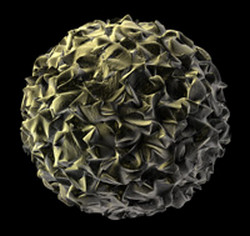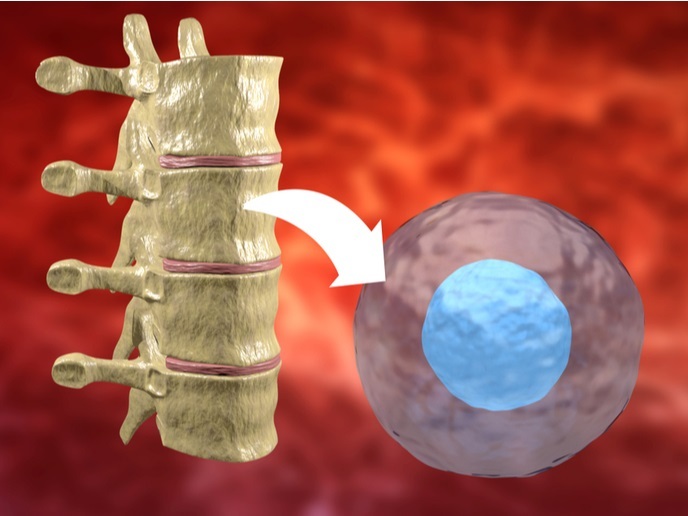Driving cell differentiation on chips
Regulatory immune cells and especially T cells are emerging as a promising approach for treating various autoimmune or inflammatory conditions such as Type-1 diabetes mellitus (T1DM) and inflammatory bowel disease. Optimising the procedures for cell culture of these cells is of utmost importance before proceeding with clinical applications. Scientists in the EU-funded NANOII(opens in new window) project proposed a novel method for differentiating hematopoietic cells down a specific lineage. They developed micro-and nanofabricated surfaces functionalised with specific molecules where cells could bind, differentiate and expand. Gold nanoparticles, initially attached to glass surfaces were subsequently coated with various molecules capable of supporting the growth and differentiation of regulatory T cells or dendritic cells. The NANOII cell chips were designed to recreate the in vivo microenvironment mimicking cell-cell-interactions and molecular signals. To this end, the microfluidic platforms contained chemical gradients of biologically active compounds in solution. To validate the phenotype and morphology of the generated cells, a high-resolution microscopy was set up alongside multi-parameter algorithms for following cell differentiation. Furthermore, regulatory T cells were screened for their efficacy in preventing inflammatory bowel disease in experimental models. Finally, the whole process was scaled up to generate high numbers of antigen-specific regulatory T cells under clinical-grade conditions for cellular therapy. Although the deliverables of the project present with high commercial exploitability, further optimisation of the culture conditions to good manufacturing practice (GMP) standards was considered vital for obtaining approval for clinical trials. Nonetheless, the NANOII approach offered a new perspective for clinical diagnosis and therapy of important diseases. Immediate plans include obtaining a GMP-compatible, cell-based medicinal product for patients with T1DM.







